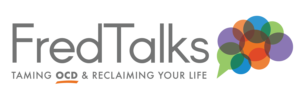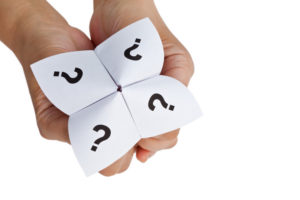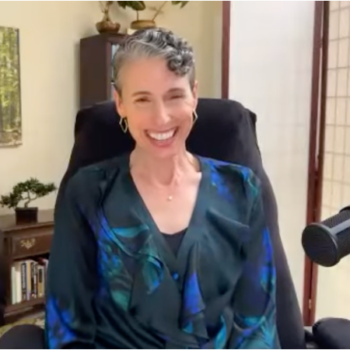 If you have OCD and it’s acting up because of the COVID-19 pandemic, you’re not alone. But don’t let your self-critical voice or OCD get you down if you’re struggling right now. Instead, empower yourself by validating your experience, modifying your expectations, and self-compassionately accepting your OCD recovery efforts.
If you have OCD and it’s acting up because of the COVID-19 pandemic, you’re not alone. But don’t let your self-critical voice or OCD get you down if you’re struggling right now. Instead, empower yourself by validating your experience, modifying your expectations, and self-compassionately accepting your OCD recovery efforts.
Recognize OCD flare ups are normal
This coronavirus situation causes heightened anxiety for everyone. When you’re anxious, your brain assumes there’s a saber tooth tiger in the vicinity. Your brain then lowers the threshold for threat detection to help it not only identify and avoid that tiger, but its bloodthirsty friends who must be lurking nearby.
Thus, all this heightened OCD activity: more frequent intrusive thoughts, higher levels of anxiety, stronger urges to do compulsions. Recognize and validate that all this is normal because of the COVID-19 pandemic.
Expect and welcome intrusive thoughts
When intrusive thoughts and the resulting anxiety barge in, you can do your best to put your shoulders back and say, “I expected you to be here, OCD, and I’m glad you are, because I’ve been wanting to work on [insert obsessive content here], and this is a great opportunity to do ERP as best as I can!”
As Emerson said, “When a dog runs at you, whistle for him.” You can steal OCD’s power by using what it throws at you as an opportunity to practice exposure and response prevention therapy (ERP). But if you’re not always successful in your ERP efforts right now, that’s okay. In times of stress, sometimes you’ll win and sometimes OCD will win, that’s just the way it goes!
Realize it’s challenging to identify what’s compulsive and what’s not

I as share in the stories of Is Fred in the Refrigerator? Taming OCD and Reclaiming My Life, my OCD symptoms have included just right and contamination OCD, health anxiety, and scrupulosity. Every one of those is triggered by the guidelines we’re now trying to follow as a world society to manage the pandemic. I went to Zumba this morning and noticed as we were dancing that there was exactly six feet of social distancing between each of the participants, putting us in a perfect formation. It made me smile, because my OCD couldn’t have arranged us more symmetrically if it had tried.
We can’t model what the “average person” does anymore because they are all doing what look like compulsions. I’m now doing things that a few weeks ago would have been compulsive for me (lots of handwashing, using cart wipes at the store, avoiding crowds) but are now prescribed behavior. (See these tips for more on managing OCD fears about coronavirus.)
I’m doing what I can to do no more than what’s prescribed, and where recommendations are fuzzy or still being debated, I try to make decisions that I think are right for others and myself without being compulsive. But there aren’t clear lines around what is and is not compulsive right now, so I’m just doing the best I can. It’s all any of us can do.
But don’t try to be perfect
None of us are going to do all this perfectly. However, you might worry that if aren’t perfect, a COVID-19-induced OCD lapse could turn into a relapse. While that’s a possibility for any of us with OCD, we can’t prevent relapses with perfection because perfection is impossible. We’re all going to forget to welcome the intrusive thoughts at times. We’re all going to end up doing some compulsions. It’s just part of having OCD, especially during a global emergency. Aim for and expect imperfection so that managing your recovery is its own meta-ERP.
And be kind to yourself
The brains of people with OCD are over-achievers in detecting and reacting to danger signals, so while people without OCD see the pandemic as a crisis, to those of us with OCD, it can resemble the coming apocalypse.
Therefore, be nice to yourself! This is an incredibly challenging situation filled with myriad unknowns, and the more self-compassionate you are, the stronger you and your recovery will be.
To learn more about my self-compassionate views of OCD recovery, see chapter 19, A New Rule #1, of Is Fred in the Refrigerator? Taming OCD and Reclaiming My Life.



